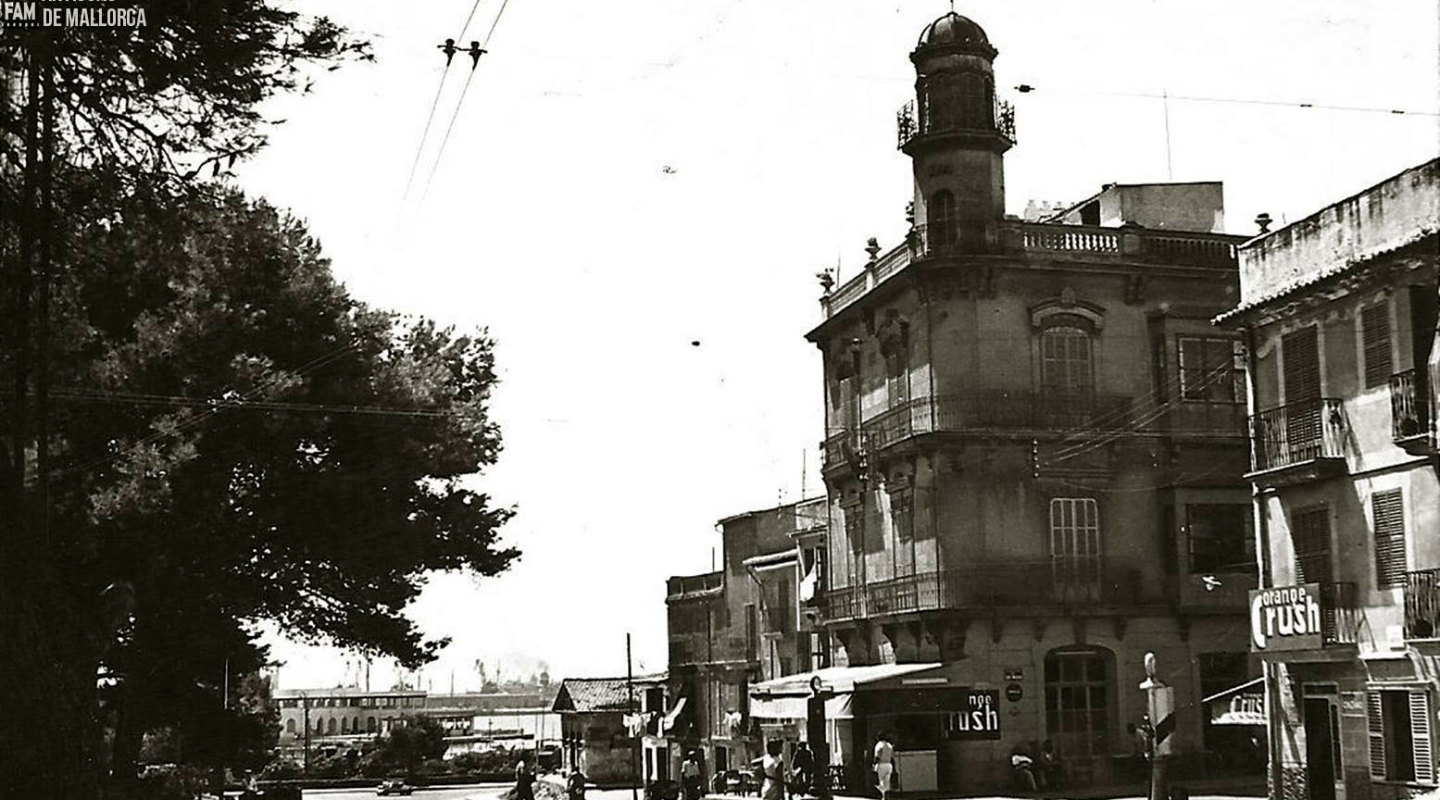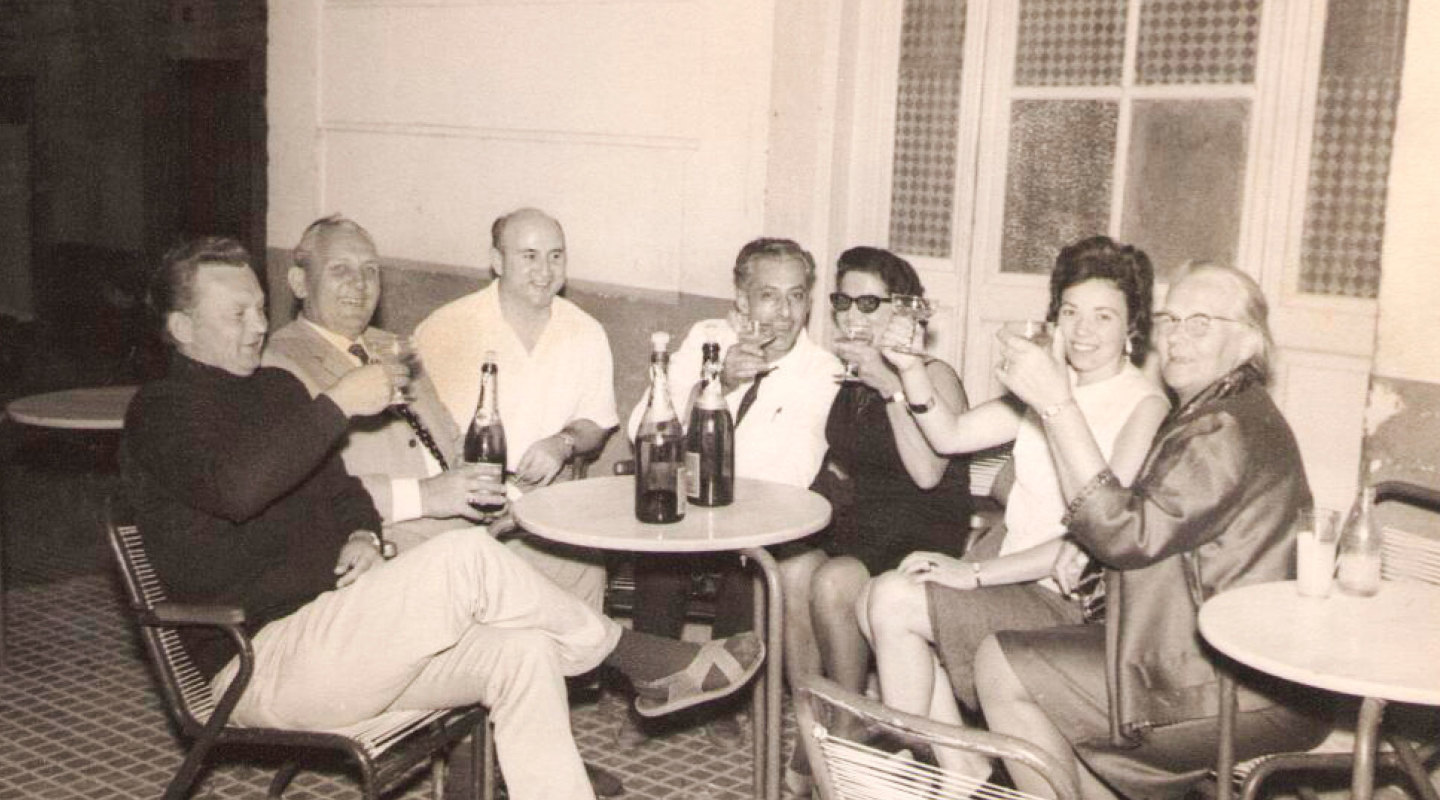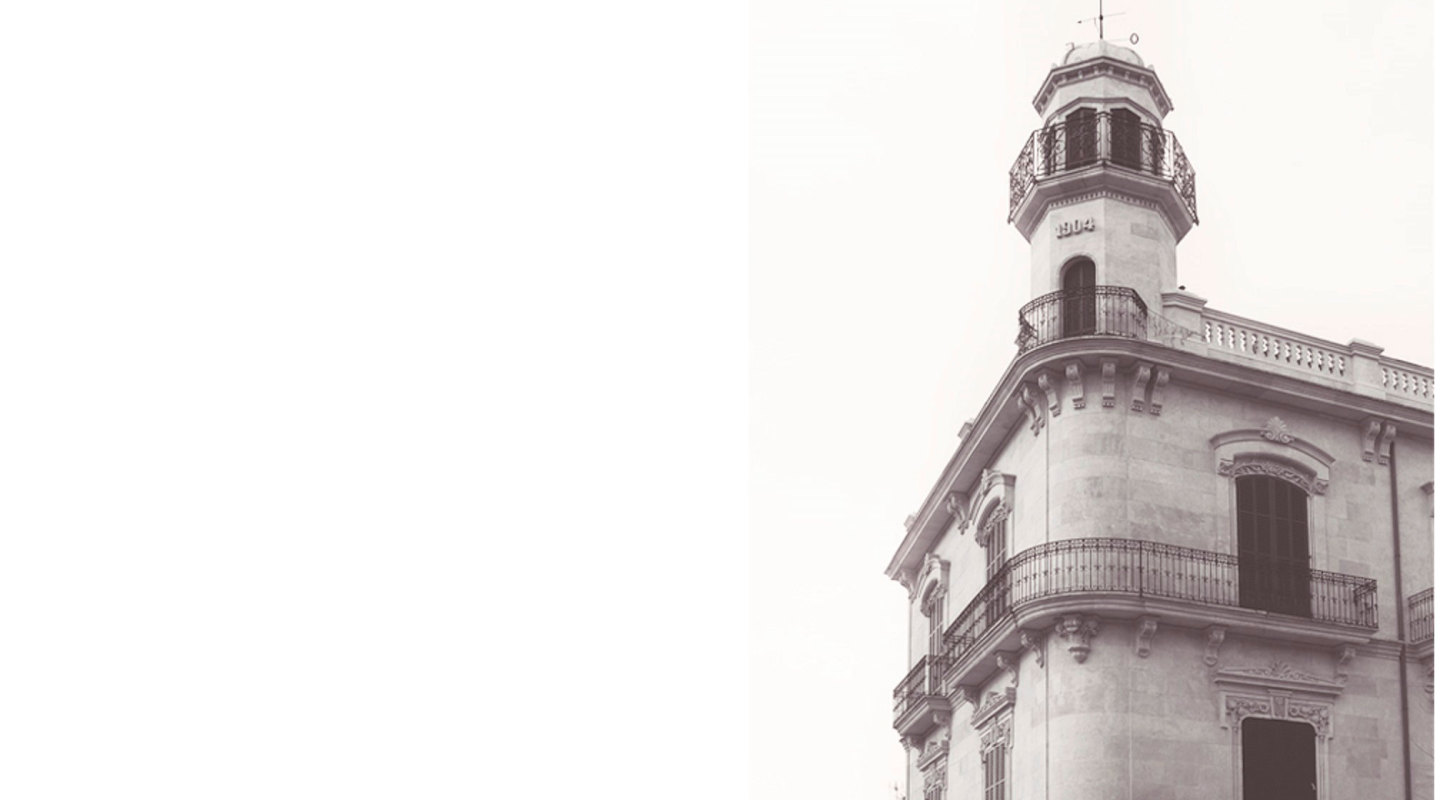A city landmark
With over a century of history, the building of the Hotel Hostal Cuba is a well-recognised landmark in the city of Palma de Mallorca.
In the past and for many years, Hostal Cuba counted sailors and fishermen as its guests, people who worked under extremely tough conditions that are fortunately difficult to imagine nowadays.At present, after its renovation, the Hostal Cuba Hotel **** has been turned into a cosmopolitan 4-star hotel that maintains its predecessor’s name as a show of continuity and respect for our past.
At the end of the 19thcentury, Rafael Juan Roc, born in Santa Catalina, emigrated like many of his countrymen giventhat his father was a merchant seafarer and the ship he commanded traded with the Caribbean. After living in Cuba for many years, Rafael came back to the city where he was born.Having made his fortune in the Caribbean, he bought some houses in Carrer Sant Magí and Camino de Ronda, the latter of which is now known as Avenida Argentina. The houses were demolished and he had this building erectedto become his family residence.
As you may read on the building’s façade, the construction manager was Gaspar Reynési Coll, who was strongly influenced by Art Nouveau. Gaspar studied Fine Arts in Barcelona, alongside some of the most relevant architects of this movement, includingGaudí. This Art Nouveau influence is clearly visible in the design’s purity of linesand the floral ornaments adorning the façade.
The Roc family lived in the building from its construction in 1904 until the Spanish Civil War. They then decided to sell it after their daughter’s death. The new owners converted the building into the Hostal Cuba, a modest establishment offering accommodation mainly to sailors and fishermen, who lived there for extended periods of time. As years went by and the city continued to evolve, thanks to itsbar’s friendly atmosphere the hotel was patronised by both residents and tourists, not only as a place offering accommodation, but also as a meeting place. At the time you could buy almost anything at the bar, from fish bait and ship fuel to tobacco that was smuggled in from the Caribbean.
However, it was not until the 1990s that the establishment was closed, only to reopen well into the XXIst century.
Our challenge began in 2013.The interior was completely transformed without losing the building’s charm, with the intention of converting it in a unique hotel, while the outer structure and its striking façade were not changed in order to preserve all theirvisual strength and history.
By its own right, the building has been classed as a Protected Cultural Good. For that reason the building is subject to historical protection rules. The façade and structure are still in their original condition, and the staircase and interior sandstone walls have also been preserved.These elements exist in perfect harmony with the furniture, decoration and state-of-the-art equipment and amenities.
In addition to our interiors, one of our crown jewels is the Sky Bar, a rooftop terrace that is open to the public, for residents of the islandand tourists alike. From here you can enjoy a breathtaking panoramic view of the city and onto the Bay of Palma. Today, with the Hostal Cuba Hotel **** in full operation, our goal is to offer a high level of service so that bothguests staying with us and visitors who drop by at any time of the day enjoy a memorable experience. Our team of 45 young and dynamic employees strive dailyto offer our customers our best asset: efficient service delivered with a welcoming smile.



